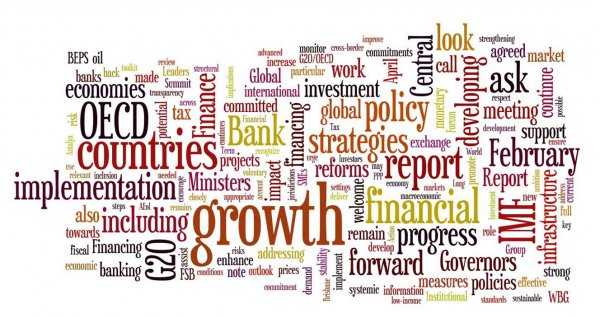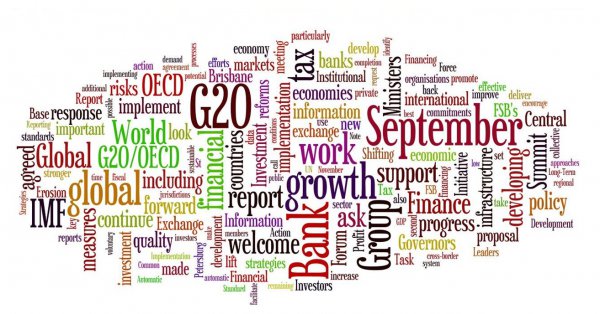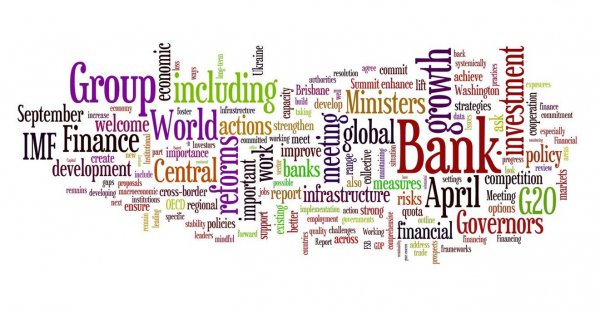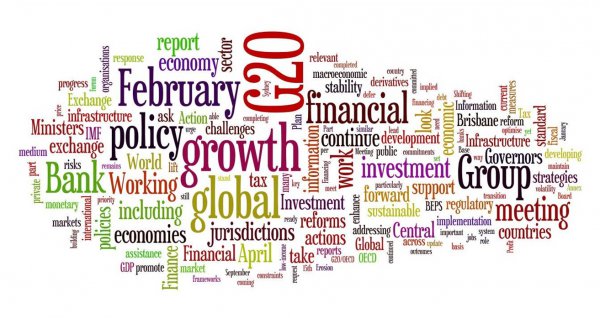A word-cloud analysis of the G20 Istanbul communiqué
The G20 finance ministers and central bank governors met February 9-10, producing the first communiqué of Turkey’s G20 presidency. As usual with these meetings, negotiating the communiqué was a stressful endeavor that went on well into the night on both days.
The resulting text has had a mixed reception. Some in the G20 community think that it lacks focus. The Australians especially are proud of having trimmed down the agenda last year and caution against overextension every opportunity they get. Turkey in turn, appears content at having reached consensus at its first major G20 negotiation as president. It is aware that its agenda is still broad, but hopes to find focus in the coming months.
At 1144 words, the Istanbul communiqué is far longer than the Sydney communiqué of February 2014 (725 words), but shorter than the Washington D.C. communiqué of April 2014 (1351 words). In parts, it heaps praise on previous G20 presidencies (beginning of point 7) or engages in analysis that feels more like it belongs to a newspaper than a document signaling the G20’s intentions (point 4 is one example).
Looking at word frequency reveals a similar lack of focus. “Inclusiveness,” for example, which is the most novel of the Turkish presidency’s three “I”s (in short, “Inclusiveness, Implementation and Investment for Growth”), is only mentioned twice in the entire document. “Low-income countries” and “SMEs, that are identified as cross-cutting subjects, are mentioned only once each. Meanwhile, “growth”, the key word of the Australian presidency, appears more frequently than in any of last year’s communiqués. All this suggests that Turkish presidency was a bit too eager to please everyone, even if it meant watering down its own agenda.
So Turkey has some catching-up to do. Australians point out that the Sydney communiqué in February 2014 already had decided on the 2 percent growth target as the banner of their presidency. They knew what they wanted out of communiqués and negotiated hard to trim them down. But it would be unfair to expect the Turkish presidency to follow the same route. Whatever it comes up with will likely be broader than a single digit, which is fine. The important thing is that it gives the G20 direction and has the force to define the presidency’s legacy.
Istanbul, 10 February 2015 (1144 words)

Cairns, 21 September 2014 (953 words)

Washington, 11 April 2014 (1351 words)

Sydney, 23 February 2014 (725 words)





